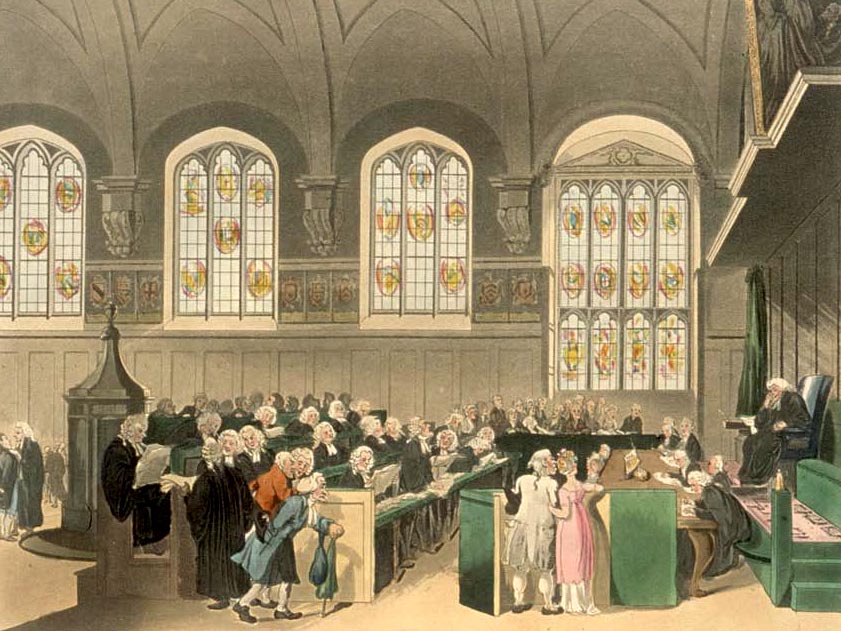History of Legal Education in Europe
The history of Legal education in Europe dates back to 400 BC when the Roman Jurists and orators created the earliest elements of the profession. With not much focus on improving the legal analysis, courts in Athens and Greece were considerably relaxed. History of Legal Education in Europe Matters were highly different in Rome with maximum power lying… Read More »

The history of Legal education in Europe dates back to 400 BC when the Roman Jurists and orators created the earliest elements of the profession. With not much focus on improving the legal analysis, courts in Athens and Greece were considerably relaxed.
History of Legal Education in Europe
Matters were highly different in Rome with maximum power lying in the hands of the aristocratic priests who restricted their knowledge of laws to a few. With discontentment arising among the public, the senator formed a commission of ten who then formulated “The Law of the Twelve Tables”.
From ‘Formulary system to Cognito procedure’, various methods of legal procedure were devised to compensate for the earlier shortcomings. While the training of the Advocates was earlier restricted to their skills of persuasion, the study of law was also introduced now. With the passage of power into Christian hands now, the Church began to develop their own set of rules, called Canons.
Fall of Roman Empire
The sudden fall of the Roman Empire and the invasion of Germanic Barbarians paved way for a change in the legal institutions that had earlier existed. The Germanic Law Codes were highly different from the Roman laws with the latter eventually fading away. Canon Laws, on the other hand, continued to flourish as the last remnant of Roman civilization was washed away. The need to settle disputes began increasing in the 11th century with most matters being argued before popes and priests.
An increasing number of judge delegates were formed to mitigate the burden on the popes. While they did not undergo formal legal training, they had a basic knowledge of the legal facts. With time, the importance to have legal experts for the bishops grew as the canon laws grew more complex. The importance of the officers’ was such that the Bishop had to assign a delegate for every case that was brought before him.
In addition to these officers, commissary judges were appointed to accompany officials or act in their absence. The prominence in canon laws led the judges to be more professional with a huge number of people entering the profession. Thus by 1200, trained lawyers became an essential part of the church governance. Lawyers, at that time, could only resort to scattered texts and passages to learn the technicalities of the profession; thus arose the need for proper texts that would eventually become indispensable for a better approach.
Professionalism of the Legal Scenario
The earliest establishment of the University of Law dates back to the 12th century in Bologna and Paris. Mastery of its language and procedures required a substantial investment of time and money, as well as the expenditure of a great amount of intellectual labour. Judges and lawyers graduating from these institutions highly differed from the ones that practised prior to the 13th century.
A more systematical, practical approach to the law was introduced; these institutions garnered so much attention that they attracted scholars and foreign students to attend university. While certain universities were generated as a result of kings and princes, there were a few that arose as a result of migrations in times of turmoil by students and masters from other established universities. With the addition of universities, the transition from quasi-professional to full-fledged professional status began occurring.
From around 1250, many professional canonists began appearing regularly in the records of the church courts. By the beginning of the fourteenth century, men in these posts generally held university degrees in law. Thus, by the end of the thirteenth century, trained canonists had become a privileged group among the social and political elite of Western Europe. Roman sources provided canonists with a model for a system of providing legal services that they themselves had adopted.
While the lawyers were increasingly becoming more professional, jurisdiction in the medieval church lay in the hands of the pope and bishops. Authorities to pass judgment lay inherently in them with no need for any credentials to hold the deemed post. While this practice went on for a long time, criticisms began pouring in for the undue advantage the popes held.
Ecclesiastical judges had become what Blackstone called “oracles of the law” during the latter part of the thirteenth century. In order to interpret the legal knowledge inspiringly, judges needed a better understanding of rules. As canon law grew voluminous and complex, the authorities who appointed these judges decided to appoint such people who had spent more time studying law.
Demand for professionalism set in as there was an increasing need for better lawyers with higher legal understanding. This resulted in the abolishment of caste hierarchy in the profession with well-read lawyers being given more preference.

